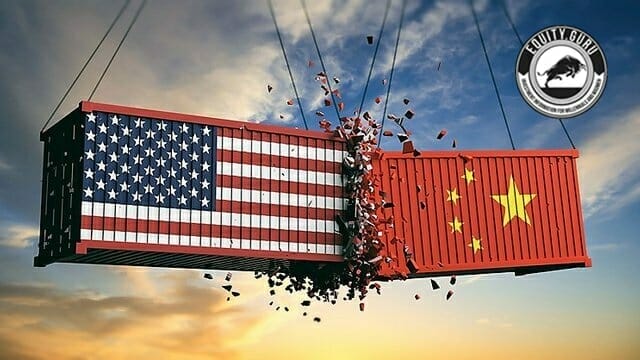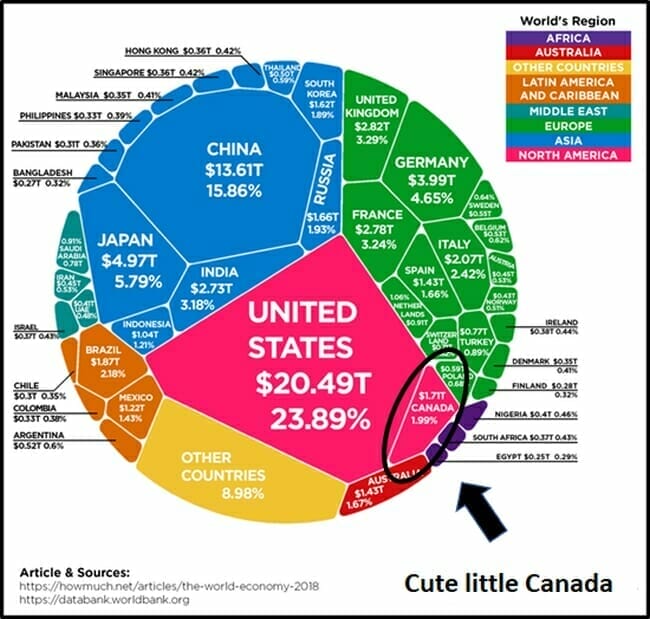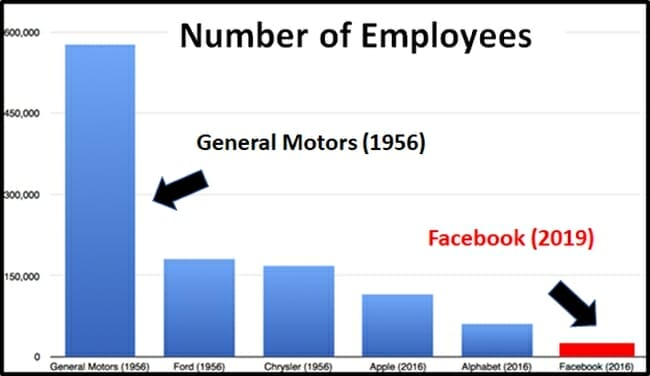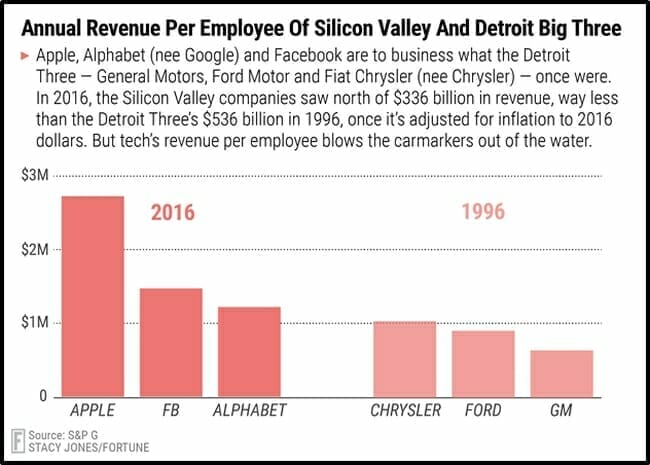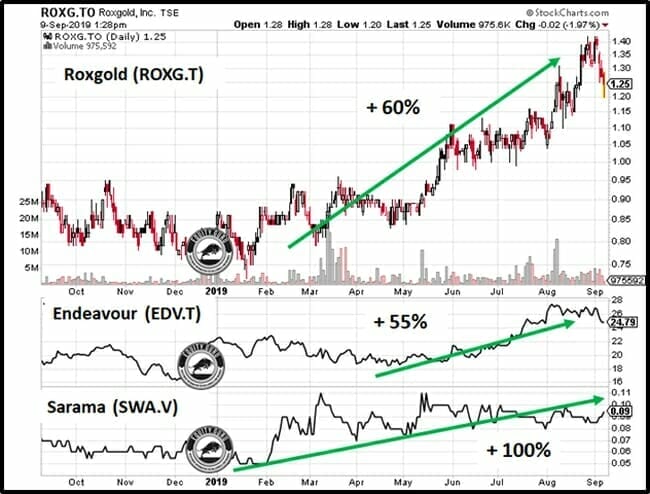The U.S-China trade war has catalysed a furious debate about the cultural and economic differences between the two countries.
If you don’t have time to wade through a 30,000-word article, we highly recommend the Netflix documentary “American Factory” (2019, 115 min) produced by Michelle and Barack Obama.
The story is this: in 2008, GM shut down its Dayton Ohio car manufacturing plant because it was losing money (assembly-line grunts were making $29/hr).
With little education – and no government efforts to re-train them – most of the 20,000 laid-off Ohio workers were unable to find new jobs.
Cars were re-possessed, alimony went unpaid, houses were lost. The desolate ex-GM workers consoled themselves with french-fries.
Imagine the excitement when a Chinese businessman, Cao Dewang, decided to re-open the Ohio plant as an automotive glass factory (Fuyao Glass America), re-hiring many of the idled ex-GM workers!
The excitement wore off fast.
The starting wages at Fuyao Glass America were $12.84/hr.
Platoons of chunky, aging American workers oozed along the factory floor like gigantic slugs, while the young, thin, enthusiastic Chinese workers flittered past them like luminous butterflies.
The American workers’ “output is pathetic,” stated Vulture Magazine, “The Chinese managers observe that they are ‘pretty slow. They have fat fingers’.”
“Cao and his ilk aren’t malevolent, exactly,” continued Vulture, “They simply equate productivity with happiness and expect American workers not only to feel the same but to be grateful for the opportunity to experience such happiness.”
Okay – big deal – American workers are a bit lethargic and have lower IQs than the Chinese – but the U.S. has a much bigger GDP, right?
Yes, they do!
Here’s a beautiful GDP graphic to prove it – courtesy of the talented crew at The Visual Capitalist.
“The gap between China and the United States is narrowing,” stated The Visual Capitalist, “in nominal terms, China’s economy is now 66.4% the size.”
But in 2019 – in GDP terms, the U.S. is “King of The World.”
How can America be so economically dominant, with such a weak-ass workforce?
Because “workers” are yesterday.
Who needs them?
Facebook (FB.NASDAQ) stock price has increased 900% in 7 years. It now has a market cap of $520 billion.
But FB only employs 18,000 people.
That’s about 27 X fewer people than GM employed in 1956.
“These days, the number of employees is less important as automation and sophisticated programs take over,” confirms Forbes Magazine.
These tech giants incur fewer costs in comparison to those in the auto industry. Facebook and Alphabet generate the majority of their revenue from digital advertisers. And Facebook spends virtually no money on raw materials or keeping inventory.
“Bringing manufacturing back to the U.S.” sounds great – but it’s going to jack the price of all the useless shit Americans buy to cheer themselves up.
The 2019 U.S. deficit is on track to reach $1.4 trillion ($9,000 per U.S. taxpayer) so there’s enough borrowed money sloshing around short term to absorb the cost of the trade war.
In the old days, spending borrowed money was considered risky.
Not any more!
Americans are the greatest shoppers in the world!
This is their special talent.
Shopping in the U.S. generates a whopping 68% of the U.S. GDP.
There are more shopping malls in the U.S. than high schools.
Americans collectively carry $870 billion in credit card debt, but still spend $70 billion a year on pets, including must-own products like “Poop Freeze”.
Without U.S. shopping – the GDP graphic looks like this.
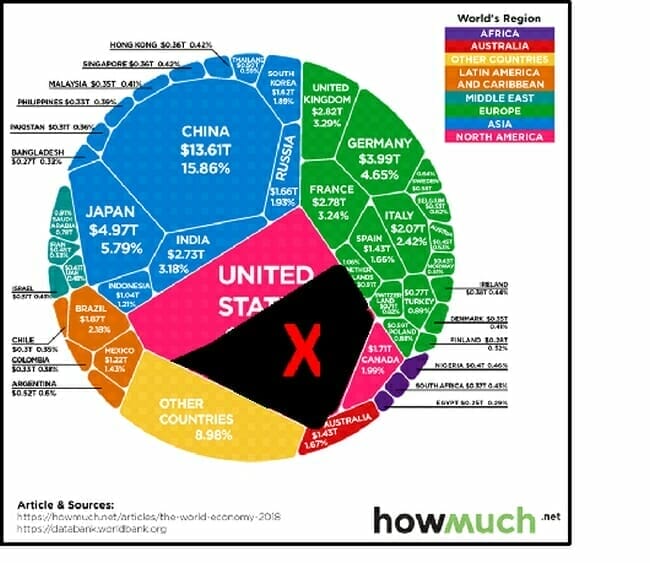 By comparison, Chinese shopping skills are abysmal.
By comparison, Chinese shopping skills are abysmal.
Shopping in China accounts for only 54% of China’s GDP.
They don’t get it! They buy boring shit like groceries, furniture and new cars.
A research paper published by the New York Federal Reserve Bank estimates that U.S. tariffs on China will cost the typical American household $831 per year.
That means that U.S. consumers will have to buy less stuff, or borrow more money.
Buying less stuff will trigger a massive recession.
If you’ve ever tried living off your credit cards, you understand that “borrowing more money” to buy shit you can’t afford, is train-wreck in the making.
When the confidence in fiat currency finally implodes, there will be a stampede to gold. Legendary mining investor Frank Giustra talks about it here.
Last New Year’s Eve, we wrote a gold article featuring four non-client gold companies operating in a troubled, misunderstood African country called Burkina Faso.
Roxgold (ROXG.V) operates the Yaramoko Gold Mine, West African Resources (WAF.V) is developing Sanbrado Gold Project, Sarama Resources (SWA.V) is a micro-cap with an inferred mineral resource of 2.1Moz Au, Endeavour Mining (EDV.V) is a mature gold miner.
Burkina Faso is victim to violent outbursts, most of which is attributed to the jihadist group Ansarul Islam – who have sworn allegiance to Al-Qaeda. Understandably, it gets a lot of bad press.
“Our premise is that mining can be a good thing for the people of Burkina Faso,” we wrote, “in the same way that factories in China helped drag 400 million people out of poverty.”
This year, well-run gold companies have started to perk up.
As “American Factory” makes abundantly clear, U.S. workers can not compete with Chinese workers.
“What Cao [the CEO of Fuyao Glass] doesn’t grasp is that Americans no longer have faith in a social contract,” states Vulture Magazine, “It’s the worst of communism (become a cog, a zombie drone) and the worst of free-market capitalism (you’re expendable in all ways).”
The U.S. money-printing orgy is grinding to its final ugly conclusion.
There is only one winner.
It’s not China.
It’s not the U.S.
Its name is gold.
– Lukas Kane
Full Disclosure: Equity Guru has no financial relationship with the companies mentioned in this article. The writer owns stock in Roxgold, Endeavour, Sarama and West African Resources.

